How are DeFi (Decentralized Finance) platforms being regulated globally?
» Legal and Regulatory Discussions- DeFi platforms face a patchwork of regulations as they are governed by the local laws of the jurisdiction in which they operate.
- Some countries have begun to implement specific DeFi regulations, while others apply existing financial laws to DeFi activities.
- Global regulatory bodies like the Financial Action Task Force (FATF) are working on guidelines to provide a unified approach to DeFi regulation.
Stumbled upon some articles about DeFi (Decentralized Finance) platforms recently and got really intrigued. Got me thinking though – with all the news about governments and entities trying to control, regulate or even ban crypto, how is DeFi being affected? Is it being regulated globally and if so, how? Looks like it's a different beast altogether compared to traditional financial systems, plus with it being decentralized and all. What regulations and safeguards are in place to handle fraudulent activities or malpractices? Do rules vary wildly from country to country or is there some sort of unified global approach? Eager to hear from anyone in the know. Cheers.
Well, it's kind of a mixed bag when it comes to global regulation of DeFi platforms. Some countries are trying to stay ahead of the curve and create regulations that accommodate this new sector, while others are more reactive, creating rules in response to problems that arise.
Central to this issue is the fundamental philosophy of DeFi - decentralization. This brings challenges for regulators because there's no central body to oversee or enforce rules. It's like trying to control the wind. But despite these challenges, regulators are definitely not turning a blind eye to DeFi.
In the US for example, there's a lot of dialogue happening around how to regulate DeFi. The Securities and Exchange Commission (SEC) is taking an interest, but there's still a lot of legal gray area to navigate. The SEC seems to be focusing on whether tokens issued by DeFi platforms are securities - which could place them under SEC jurisdiction.
As for Europe, efforts are being made by the European Commission to regulate the crypto market in general. Their proposed Markets in Crypto Assets (MiCA) regulations would establish rules for crypto Assets and service providers, and could potentially apply to certain DeFi platforms.
In Asian countries like China, there's a strong crackdown on crypto activities including DeFi. So, in essence, there's no unified global approach. Each country appears to be setting its own rules, so the regulatory landscape is very much fragmented.
As for actions against fraud and malpractices, some DeFi platforms have implemented their own measures, including bug bounties and audits. But again, due to the decentralized nature, it's challenging for a centralized authority to enforce punitive measures.
Just my two cents! Curious to know what you guys think about this?
It seems like the landscape is still in flux, with different countries taking different approaches. However, with all this uncertainty, what can we, as individuals who potentially want to invest or participate in DeFi, do? Here are a few thoughts.
Due diligence is key. Before investing in any DeFi project, do a deep dive. Who are the developers, what is their reputation and track record? What have the user experiences been like? Are there any red flags or concerns raised by others in the community?
Education is critical. Understanding the basics of DeFi and blockchain technology will help immensely in navigating this complex field. It could also assist in the interpretation of regulations in different areas and how these could potentially impact the projects you are considering.
Leverage the community. The DeFi community is generally open and transparent, with many platforms and channels for discussions and sharing of information, like this forum. Make use of these to gain insights and learn from other people's experiences.
Lastly, consider legal consultation, especially if you want to engage in DeFi on a larger or more significant scale. This may cost some up front, but it could potentially save a lot from potential legal problems down the line.
At the end of the day, while the potential of DeFi is enormous, the risk is also significant. And while the whole concept defies centralized control, being smart about how we engage can create a degree of individual control. What are other ways we can navigate through this wild west of finance, in your opinion?
Well, if I had the answers to all these complexities, I'd probably be rocketing towards the moon with Elon Musk right now! DeFi sure feels like trying navigate a tricycle through the Grand Prix at times!
That's a lot to ponder on, isn't it? So, considering these uncertainties and the current legal grey areas, what practical steps could be done to make DeFi more accessible and safer for the average person, without stifling innovation? Thoughts?
That's a great question and certainly a tough nut to crack. On one hand, we have financial innovation and opportunities for inclusivity like no other; on the other, there's significant risk and potential threats to investor safety. Maybe we need to find a middle path?
One way could be through clear, proactive communication from DeFi platforms. It's pretty clear that potential investors and users need to understand what they are getting into. However, complex white-papers and crypto-jargon can be excessively daunting for the average joe. So, how about platforms start putting things in simple, layman language? Perhaps create easier onboarding processes, user-friendly interfaces, and comprehensive educational resources that aren't just lip service.
Also, self-regulation and rigorous internal auditing could be another way. DeFi platforms need to show that they're making serious, honest efforts to ensure security and trust. This would not only bolster confidence but might also help in shaping a dialogue on the need for appropriately adjusted regulatory frameworks.
At the same time, users themselves need to tool-up, learn, and stay engaged. You don't want to go swimming without knowing how deep the water is, nor would you want to invest in something you don't understand, right? Investing in oneself in terms of education can never go wrong.
Finally, discussions like these, where we acknowledge the complexity, debate the issues, and generate ideas, are essential for progress. What do you guys think? What's the way forward, in your opinion?
Indeed, it's a complex situation that'll take concerted efforts from both regulators and DeFi communities to navigate. Proactive communication, education, and self-regulation seem to be the way to go. The waters might be murky now, but with the right approaches, things could become clearer. It's a space to watch closely, that's certain.
Unfortunately, all the precautions in the world can't eliminate risk completely. DeFi is still the Wild West in many respects. It's a high stakes gamble.
Given all this, how would you suggest a newbie get started in DeFi? What's the best way to dip your toes in without getting burnt?
Navigating the realm of DeFi is not a walk in the park, especially for those who are new to it. It's essential to be cautious and informed. It's like solving a complex puzzle, you need a good strategy and understanding of the game.
There's no such thing as easy money, and DeFi is no exception to this. An excellent place to start could be by learning about blockchain technology and the fundamental concepts of DeFi. Gaining a robust knowledge base might help individuals avoid scams and understand what they're investing in.
It's also crucial to recognize the reality of volatility in the crypto world. The value of investments can swing wildly in a short period. Not letting emotions dictate investment decisions could prove beneficial in managing these situations better.
Lastly, it could be smart to start small and not put in more money than one can afford to lose. This would limit potential losses while still providing the opportunity to learn and understand how DeFi works in practical terms.
Does anyone else have any strategies or tips for safely dipping your toes into the ocean that is DeFi?
What about exploring DeFi's lending and borrowing platforms? It's a relatively low-risk way to understand smart contracts and interest yields in a practical setup. Just ensure to start small, folks.
That's the spirit! The world of DeFi is akin to a vast playground just waiting to be discovered. Let's dive in!
While the DeFi space offers lucrative opportunities, it's also rife with challenges. It remains crucial to tread carefully and stay informed to effectively navigate this uncharted territory.
Honestly, it's like you are blazing your trail in DeFi, much like pioneers in the old days. Our navigation tools are different, the compass has morphed into community forums, white papers, and informed advice – this discussion thread itself being one – but the essential challenge remains the same. It's about venturing into unknown territories with an inherent promise and peril.
The tech is cutting edge and the possibilities are thrilling, yet alongside the magic of the 'gold rush', there's also a side that is not as gleaming. Scams and rug pulls, volatility rollercoasters, and upfront costs like Gas fees can feel off-putting.
One comforting aspect could be to remember that early explorers into any radical new environments, even digital ones, have faced the same mix of enthusiasm and caution. The internet itself, social media platforms, even traditional stock markets had their trust-building challenges.
While regulation and system safeguards will eventually catch up and polish some of the wild edges, it's on us, the community, to keep supporting each other, offering insights, and learning collectively in the meantime. It's like keeping the human element in this largely anonymous, algorithm-driven world of DeFi.
What lessons and experiences have the rest of you had that might guide someone just beginning their DeFi journey? This unchartered map we're building together could be invaluable for those joining after us.
Sure thing! What's truly exhilarating about DeFi is the pace of innovation and the community-driven initiatives. It feels like every day there's a breakthrough, a novel approach that's disrupting traditional finance. There's a palpable sense of energy and that's infectious. The spirit of collaboration and open-source approach is fostering creativity and fast-tracking advancements that would take traditional financial institutions decades. For someone just getting into DeFi, watching it evolve in real-time can be quite a thrill!
Also, the accessibility of DeFi can't be overstated. Anyone with a stable internet connection and a bit of know-how can jump into a world that was once gated by red tape and hefty capital requirements. It's not just about making a quick buck; it's about being part of a movement that's democratizing financial systems across the globe.
Moreover, despite the pitfalls and the steep learning curve, the community is one of the greatest strengths of DeFi. There's an ethos of shared learning, where more knowledgeable members are quite open to sharing their insights and experiences. It's got a way of paying forward – today's novice could be tomorrow's expert, guiding fresh entrants.
It's this spirit of shared growth and mutual empowerment that can give any newcomer genuine hope and excitement. DeFi isn’t just a financial platform; it's a vibrant, evolving ecosystem that is as much about the people and connections as it is about the technology.
Any stories or instances where the community aspect of DeFi really made a difference for you? It'd be great to hear some of those – after all, it's the experiences that bind and build stronger networks.
Fostering a supportive community is indeed a cornerstone for the burgeoning DeFi space, and harnessing collective wisdom offers a significant advantage. Beyond community, however, there are other practical tools and strategies that can enrich the DeFi experience.For instance, tools like yield aggregators are gaining traction, which can help maximize returns from various DeFi projects. They\'re designed to automatically move users\' funds to the places with the best yields. Additionally, insurance protocols within DeFi aim to mitigate some of the risks associated with smart contract vulnerabilities and hacks, although they're still developing in terms of coverage and reliability.Mapping out a risk management strategy is also a wise approach. Users can set limits on their investments based on risk tolerance, ensuring that they are not overexposed to market volatility. The implementation of multi-factor authentication and hardware wallets goes a long way in providing additional security to one\'s assets within the space.Adoption and integration can too play vital roles. DeFi is breaking down barriers, and traditional financial institutions are starting to take notice. Partnerships between DeFi protocols and these institutions could lead to a new wave of financial products and services, further validating and integrating DeFi into the financial mainstream.As the regulatory environment matures and technological advancements are made, the convergence of security, simplicity, and efficiency could see DeFi becoming even more ingrained in everyday financial activities.How do you envision the evolution of DeFi as it becomes more integrated with traditional finance? What kind of synergies or clashes could arise from such an intersection?
You know, thinking about DeFi's integration with traditional finance, there's a lot of potential for synergies that could benefit everyone. Sure, it might cause a bit of friction as the old and the new try to find a harmonious rhythm, but that's just natural whenever different worlds collide. Think back to when streaming services first appeared on the scene and how they eventually reshaped the entire music and film industries. There was resistance, sure, but over time, they've become indispensable to the way we consume media.
The same could be said about DeFi. There's room for revolutionary services that bring new levels of efficiency and accessibility to finance. With the growing interest from institutions and even governments, it seems inevitable that a convergence is on the horizon. It's likely to be a gradual process—a path sprinkled with learning experiences and regulatory adjustments.
As traditional financial entities begin to weave DeFi into their offerings, it might initially appear disjointed, but the possibilities for innovation in products, services, and financial accessibility will be significant. Plus, this alliance could bring about improved regulatory clarity that benefits everyone, providing some stability in DeFi and possibly unlocking even more capital.
In the end, while change always comes with challenges, the essence of DeFi - to democratize finance - could bring about exciting improvements to the way we handle money day-to-day. Just imagine greater financial inclusion and control over our financial destinies - that's the vision that keeps the flame of DeFi burning bright.
So, how do you all see this potential integration shaping up? Do you think traditional finance will willingly adapt or be dragged along by the tide of change? Let's keep in mind the lessons history has taught us and remain optimistic about the prospects.
Absolutely, you're hitting the nail on the head. As this integration unfolds, the key for both worlds—traditional finance and DeFi—is adaptation. Those in the traditional sector might want to strategize on harnessing DeFi's strengths, like its efficiency and direct peer-to-peer transactions, to enhance their current models. This might involve education programs for their teams or even strategic partnerships with DeFi platforms.
On the flip side, DeFi has to work on its legitimacy and trustworthiness, perhaps by prioritizing user-friendly interfaces and customer service, to appeal to the more conventional user base. Both sectors might even collaborate on developing hybrid financial products that offer the security and familiarity of traditional finance with the innovation and potential of DeFi.
It's smart to keep an eye on emerging trends and progressive legislation too. As the industry evolves, staying up-to-date with legal changes allows us to adapt and continue operating within the boundaries of the law, which would likely ease the transition for entities on both sides.
And while we're on the subject of change, let's not forget the power of grassroots movements. Users and investors can drive the change they wish to see by voicing their needs, supporting projects that align with their values, and by being active members of the community. This user-driven change has the potential to shape the ecosystem in ways that top-down regulation might not be able to.
So, it's an ongoing dance of sorts—a little give and take from both sides as they figure out the best way to move in tandem. What steps do you think DeFi and traditional finance can take to ensure a smooth dance rather than a clumsy shuffle? Plus, how can we, as users, help lead the rhythm?
Exploring interoperability solutions between DeFi and traditional finance could be key for a smoother integration while keeping a close watch on evolving tech like Layer 2 solutions for scalability and security.
With so much innovation and change on the horizon, it's understandable that navigating this space can feel overwhelming. Remember that every new frontier has its challenges, and by sticking together and sharing our insights, we can all find our footing in the world of DeFi.
Guess we can all agree, diving into DeFi is somewhat like assembling furniture without the instruction manual — thrilling, but you might end up with a few extra screws and a wonky shelf! Keep your coins close and your passwords closer, folks.
Venture small, stay informed, embrace patience.
- Can someone explain the concept of DeFi (Decentralized Finance) and its impact on crypto investments? 9
- How can I safely store my private keys offline? 4
- What are the potential legal implications of blockchain forks for investors? 6
- Does anyone have any tips for managing the emotional aspects of crypto investing, such as fear and greed? 15
- How can cryptocurrencies be used to improve the efficiency and transparency of supply chain management? 1
- What are some reputable cryptocurrency exchanges that allow margin trading? 5
- What are the potential risks and security concerns associated with the use of cryptocurrencies? 2
- Are there any recommended crypto wallets for beginners? 6
- What are some popular altcoins or alternative cryptocurrencies that are worth considering for investment? 5
- What are the legalities around accepting cryptocurrencies as a small business? 13
- How do the privacy features of Monero differ from other cryptocurrencies? 4172
- Can you recommend any trading bots or automated tools for cryptocurrency trading? 3091
- How does a 51% attack on a blockchain network work? 2627
- What's the role of Gas in the Ethereum network? 2147
- How can one identify and avoid crypto scams and Ponzi schemes? 1325
- How can cryptocurrencies be used to empower individuals in unbanked or underbanked regions? 1191
- What's the significance of Bitcoin's 21 million coin limit? 930
- What are the legal implications of holding cryptocurrencies in country X? 870
- What are some legal strategies to minimize taxes on crypto investments? 859
- Can you recommend any wallets or exchanges that offer enhanced privacy features like coin mixing or stealth addresses? 858

We have compared the best crypto exchanges for you. Just take a look at our free crypto exchange provider comparison.

We have compared the leading crypto tax tool providers for you. Check out our free crypto tax tool provider comparison.
The Best Bitcoin Mining Providers at a Glance
» Infinity HashFrom our perspective, currently the best mining provider on the market. With the community concept, you participate in a mining pool completely managed by professionals. A portion of the earnings are used for expansion and maintenance. We've never seen this solved as cleanly anywhere else.
» Hashing24A well-known and established cloud hosting company. With a good entry point and in a good market phase, a good ROI can also be generated with some patience. Unfortunately, we see the durations as a major drawback.
Blog Posts | Current
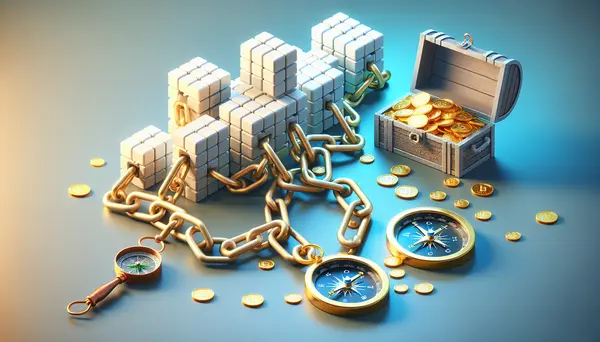
Blockchain's Potential Beyond Cryptocurrency
Introduction: Blockchain's Potential Beyond Cryptocurrency When we hear the term "blockchain," most of us instinctively think of cryptocurrencies like Bitcoin and...

Top 10 ICOs to Watch in 2023
Collateral Network (COLT) Collateral Network (COLT) is a next-generation decentralized lending platform that leverages blockchain technology to facilitate secure and efficient...
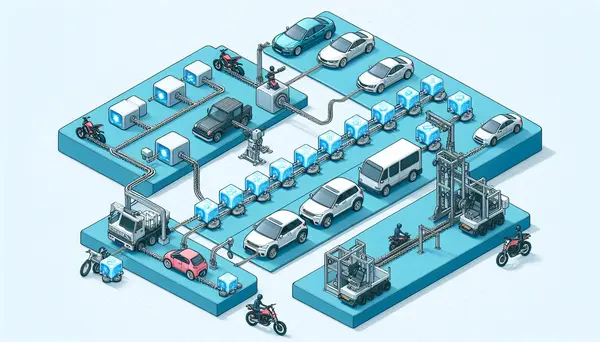
Blockchain's Influence on the Automotive Industry
Introduction: Unveiling the Power of Blockchain Blockchain technology is boldly advancing into a variety of industries, utterly transforming our occasional transactions...
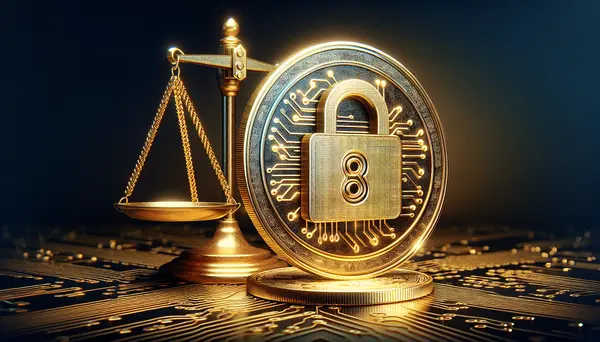
Understanding ICOs: Risks, Rewards, and Regulations
Introduction to ICOs Initial Coin Offerings, often shortened to ICOs, are an increasingly popular method of fundraising for new projects in...
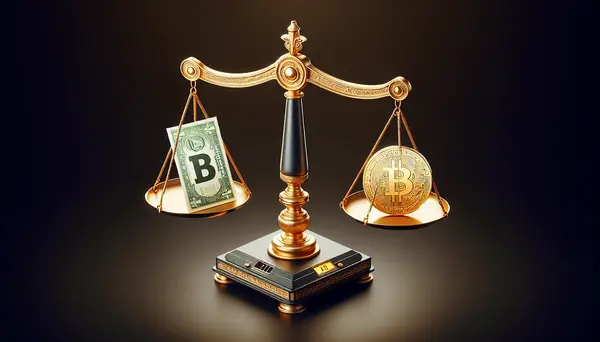
ICO vs IPO: Which is the Better Investment?
Introduction: Understanding ICO and IPO Before delving into the difference between ICO and IPO, it's crucial to understand what these terms...
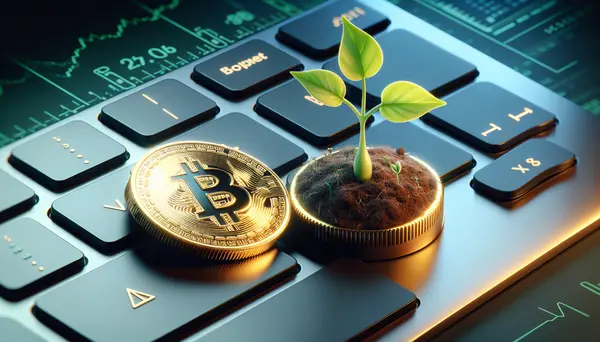
Investment Tips for the Budding Crypto Millionaire
Introduction: An Insight into Crypto Investment If you're venturing into the promising world of cryptocurrencies, a solid investment strategy can be...

How to Build a Diversified Crypto Portfolio: A Step-By-Step Guide
Introduction: The Importance of Diversification Investing in cryptocurrencies can be both exciting and rewarding. However, it's crucial to remember that the...
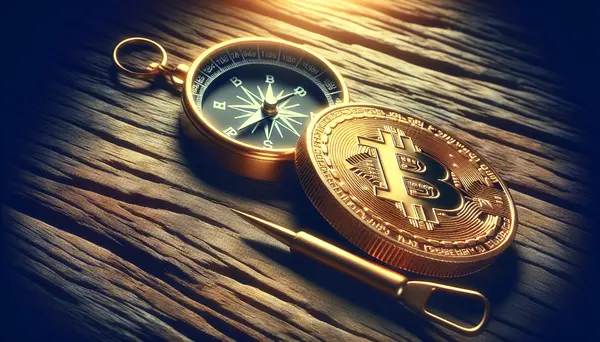
The Role of Cryptocurrencies in Venture Capital: A New Frontier
Introduction - Understanding Cryptocurrencies and Venture Capital As technology evolves, so does our understanding of what makes a valuable asset. The...
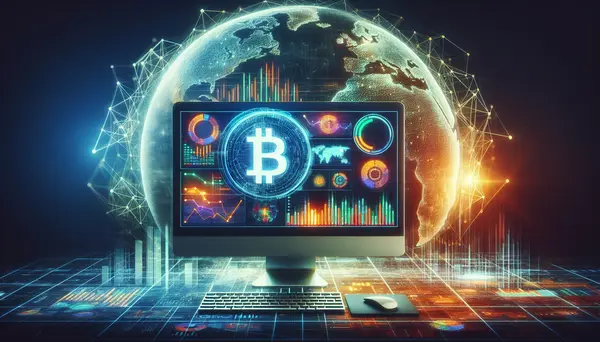
Mastering Technical Analysis for Bitcoin Trading
Introduction to Technical Analysis for Bitcoin Trading Trading in the cryptocurrency world, particularly Bitcoin, requires careful decision-making and strategic planning. One...
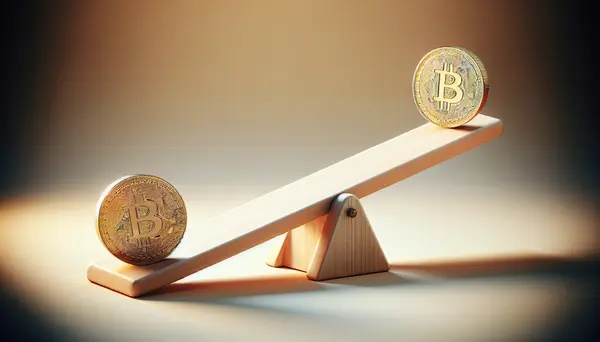
Bitcoin's Rise and Fall: Historical Analysis
Introduction: Bitcoin's Dynamic Journey Bitcoin, the world's first and most recognized digital currency, is often the subject of dramatic headlines, featuring...
